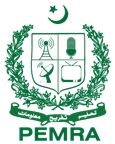(i) Based on a comprehensive appraisal of the original aims expressed in the legislation that introduced private electronic media to Pakistan, and with reference to models of regulatory forums in countries with democratic systems, the Commission makes the following Recommendations for the consideration of the Hon’ble Court and for the consideration of the new National Assembly elected on 11thMay,2013 which, with the already existing Senate, represents the new Parliament of Pakistan.
 (ii) There is an urgent need to revisit and reconstruct the laws, regulations and rules by which PEMRA exists and functions.
(ii) There is an urgent need to revisit and reconstruct the laws, regulations and rules by which PEMRA exists and functions.
(iii) Elements that should shape amendments to the existing laws, or an entirely new law, are represented in certain realities and principles.
(iv) These realities are evident in the phenomenon of continuing convergence, and the consequent need for regulation to become relevant to new realities. Smart-phones and cell-phones represent the convergence of television, radio, print, cinema, telecommunication, information technology, computers, and the internet, while digitalization opens up new possibilities and increases the range of choices. Whether it is the minimal function of allocating frequencies in the air-waves or whether it is the complex question of defining parameters for content of media (without unduly curtailing freedom of expression), the regulatory institution in Pakistan in the second and third decades of 21st century should have the capacity to reflect new realities and the means to enforce the principles of fairness, transparency, accountability and independence. This last desirable quality in particular i.e. of “independence” brings us to the second element that should shape a review of the existing laws or a formulation of an entirely new law.
(v) In order to be genuinely independent of partisan influence by the Government-of-the-day which represents the majority in Parliament but does not necessarily represent or ensure representation of the unanimity of Parliament, in order to ensure that a regulatory body is also independent of commercial influence, PEMRA, or any new entity put in place, should be authentically separated from the control of the Executive. The composition of a new integrated regulatory Authority should be such that representation of the conventional mass media sector (e.g. TV, Radio) is adequately ensured in relation to the representation of the telecommunication sector.
(vi) The power to appoint the Chairman and the Members of the Authority or any other new entity charged with regulation of electronic media and related fields could vest with one of the following two proposed forums:
Option ‘A’: A six-person Committee comprising: Speaker of the National Assembly, Chairman of the Senate, Leaders of the House and the Opposition in the Senate and the National Assembly.
Option ‘B’: The Prime Minister of Pakistan to select one out of three names proposed by a Committee comprising the Leader of the Opposition in the National Assembly, Leader of the House and Leader of the Opposition in the Senate and three other eminent citizens each representing: civil society, media, non-Muslims to be selected by the Leaders of the House and the Opposition in both Houses of Parliament.
(vii) The regulatory Authority should be administratively responsible to the Parliament of Pakistan, rather than to a Ministry or to the Cabinet Division.
(viii) While Pakistan does not possess a Constitutional equivalent of the issuance of a Royal Charter as in the United Kingdom by which, after consultation by the Cabinet (and not with Parliament), the Prime Minster requests the Queen/King to issue a Charter to the BBC, new legislation in Pakistan should, as far as possible, seek to reflect the qualities of autonomy, independence, impartiality and accountability as per the BBC’s Charter (at Annexure-7).
(ix) The third element to shape the new legislative framework should remove the existing segmentation of sectors related to communication as evident in the separate Ministries of Information and Broadcasting, Ministry of Information Technology, Ministry of National Heritage (for cinema), Pakistan Telecommunication Authority, PEMRA, PBC Act, Companies Ordinance, 1984 (applicable to PTV) etc.
(x) The integrated, well-coordinated, singular regulatory body established in the United Kingdom and known as “Ofcom” provides a pertinent example of the direction in which new legislation in Pakistan can move forward in the interest of reforms. Only individuals with direct experience of one or more sectors relevant to the convergence phenomenon in communication should be appointed to head PEMRA or any other entity which replaces it with the same principles being applied to those appointed to serve as Members of the Authority.
(xi) While Members of the Authority should ideally not exceed the number of seven or eight persons, the majority should be non official persons to prevent undue dominance by the Executive pillar of the State through the Government-of-the-day. For example, one or two Secretary-level senior officials of the Government can represent the five or six different parts or Ministries of the Government which are relevant to provide inputs to the policies and functions of the regulatory body.
